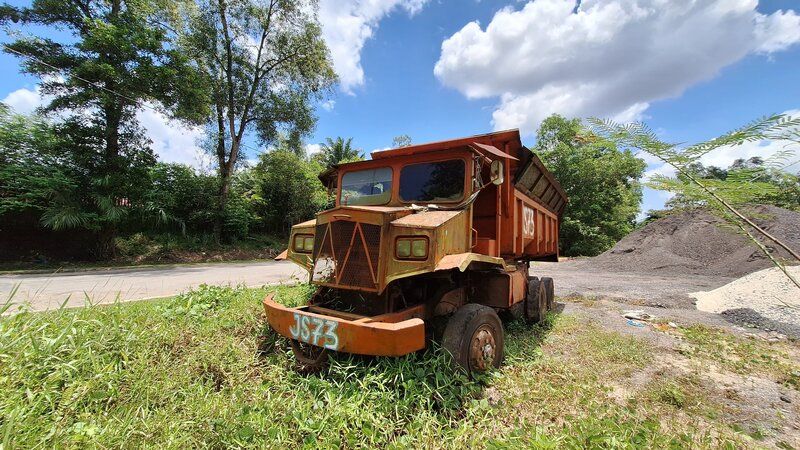End of Life: When the End of the Road has been Reached

Headlighs: Stefan Pertz, Editor of Asian Trucker
The day will eventually come when the truck has done its last trip. Too old to find spare parts, too costly to repair, outdated or outlawed, at some point the trusted vehicle will need to be taken off the roster and committed to the proverbial junkyard.
When should that happen though? Various models could be applied. There are some industries that are subject to stringent stipulations as to how old a truck can be. Maybe, at that time the vehicle isn’t even out of warranty. The end of the Maintenance and Service contract could mark the end of the service in a fleet. I have met with companies that have departments tasked to calculate when the day arrives on which the upkeep of a truck is more costly than replacing it with a new one. In these cases, the vehicle may still be sold, entering a new life in a new fleet. It might the be the end of the duty, but not the end of the life of a truck.
The discussions around end-of-life policies is tricky and complex. A great many considerations have to be made. The complexity is evident in the fact that Malaysia’s government, as one example, has said in 2022 that such policy will be implemented. In 2023, however, the statement was that no such policy shall be implemented. Come 2024, the latest reports indicate that the government is re-considering the need for an end-of-life policy.
In view of the electrification of transportation, this discussion should be intensified again in my opinion. Trucks with combustion engines contain myriads of materials that could either be valuable and therefore should be recycled or hazardous materials which need to be disposed off accordingly. Either way, we can’t just dump the old trucks in the sea or a landfill. Adding to the complexity of this are the batteries now found in electric trucks and the complexity around them being repairable, recyclable and reusable.
There is no question that we need to, eventually, decommission vehicles and have them handled properly at the end of their life. Considering the hazardous nature of some of the materials used in trucks, it should be obvious that the recycling needs to be done in a professional and controlled manner. I would echo one of my interviewees, who once stated that, if we want to have transportation, we also have to life with the fact that there is an impact on the environment. Reducing said impact as much as possible is the goal.
Just separating materials would not be good enough. The correct, proper process for recycling or disposal should be applied and we should owe it to our children to ensure that either process is done in the best, legal manner. How to handle the extracted materials should be advised by authorities or experts. It becomes apparent that the process of deregistration of trucks is not an easy task.
One issue that is typically discussed is the maximum lifespan of a vehicle before its life would be ended. I can surely see a point transporters make when they say that some vehicles are still profitable way longer than what a government stipulates. As long as a vehicle generates money, why not keeping it in the fleet. I guess this is the moment where the environmental considerations would have to come in. The truck may still be making money, but also belching out a lot of pollutants while going through spare parts at record pace. The latter also having an impact on the environment.
With economic growth, we can also expect an increase in trucks on the road. Consequently, the issue of having to deal with trucks at the end of their lifecycle is only going to become one that grows in parallel. I venture to say that indeed, we should have an end-of-life policy for commercial vehicles in place. If anything, this will also help with planning of production capacities in industries that would utilise recycled materials.
Disclaimer: The views and opinions expressed in
this article are those of the author and do
not necessarily reflect the views or positions of
any entities concerned herein.